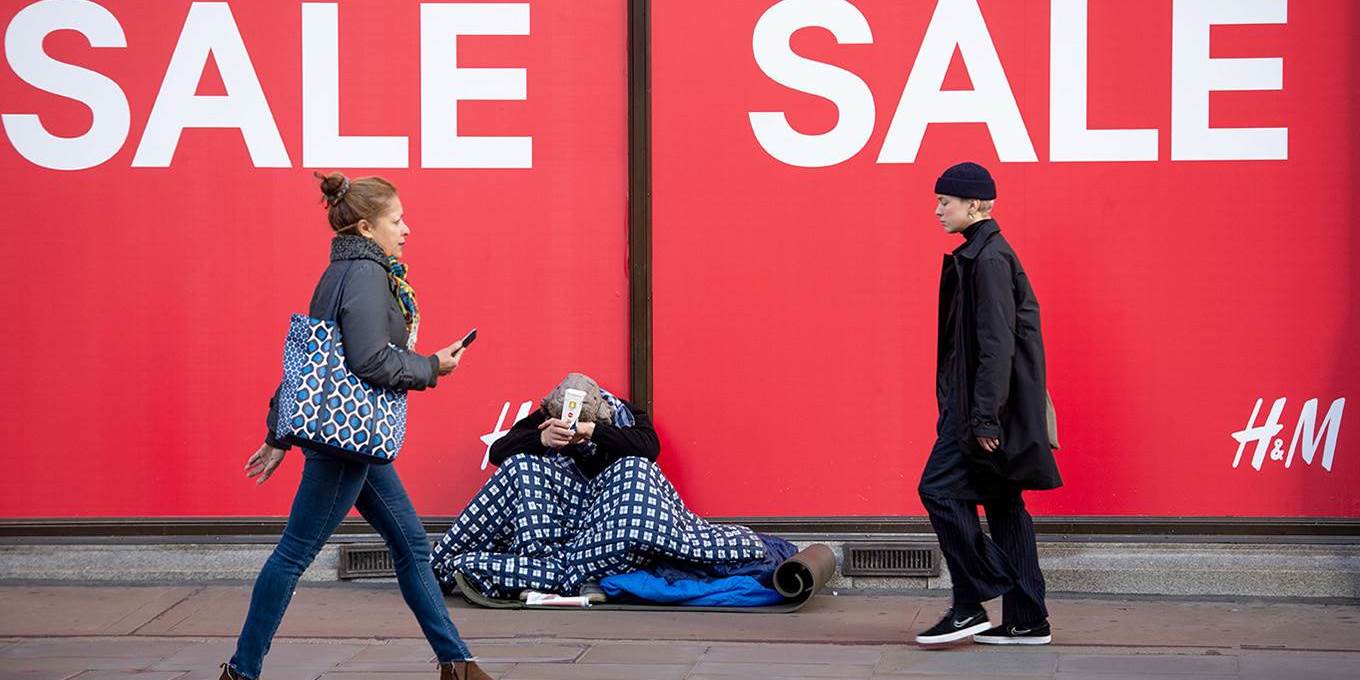Inequality has risen sharply in the United States since the early 1980s. Here is a telling indicator of the problem: according to my calculations, the U.S. middle class has shrunk from around 50 percent in the early 1980s to 40 percent in the mid-2010s. This decline has been continuous for more than 30 years.
From the work of economist Thomas Piketty, we know that rising inequality stems from more income going to the very rich. Piketty estimated that the top 1 percent (those making more than $500,000) of U.S. households received more than 20 percent of all U.S. income in 2014, double the 10 percent prevailing from the 1950s to the early 1980s. The top 0.1 percent (those making of at least $1.5 million) did best of all; their gains drive a large part of the gains accruing to the top 1 percent.
After many decades, it seems that we have come to regard high and rising inequality as the norm, almost a given.
Inequality in United States
People, however, don’t like inequality. This is clear from many surveys. Overwhelmingly, Americans think that income in the U.S. is distributed more equally than it actually is. And they desire an even more equal distribution of income than what they believe exists.
It is not only humans that value equality. Primatologist Frans de Waal rewarded capuchin monkeys with a piece of cucumber if they were given a stone and then returned it. Once they understood the reward pattern, two monkeys were paired. After both received cucumbers for a while, one monkey got a grape instead. As is true of humans, monkeys tend to like grapes a great deal more than cucumbers. The monkeys receiving cucumbers were no worse off than before, but they were clearly upset. Angrily, they threw their cucumbers at the experimenter.
You can view the actual results of this experiment for yourself on Youtube. It makes for great entertainment, and it demonstrates that our dislike of inequality is part of our evolutionary history.
A more important question concerns the consequences of great inequality. These can be divided broadly into the economic, the social, and the political.
Economic Consequences
First the economic. Wealthy individuals save a larger fraction of their income than others. When the rich receive a much larger share of all national income, the economy’s total savings rise while spending falls.
Since consumer spending accounts for 70 percent of all spending, it drives production. Rising inequality thereby reduces economic growth. Slower growth, in turn, increases unemployment and decreases government tax revenues. Governments then come under great pressure to cut spending programs that benefit the entire nation.
Furthermore, the financial institutions that receive additional savings must lend this money to pay interest to savers. Additional lending entails making riskier loans. At the same time, struggling households willingly borrow so that they can keep up with the Joneses. The result is a buildup of debt that, at some point, can’t be repaid anymore. This is what led to the failure of investment bank Lehman Brothers and the beginning of the Great Recession in 2008.
Social Consequences
Probably the most important social consequence of inequality concerns our health. British epidemiologist Richard Wilkinson spent his professional career documenting the connections between inequality and health problems such as obesity, infant mortality, and lower life expectancy. Wilkinson contends that the greater stress stemming from greater inequality is responsible for this. Stress releases hormones into the bloodstream that are detrimental to our long-term health.
More inequality is also correlated with a broad array of social problems like increased crime and addiction, worse school performance, and rising divorce rates. Correlation does not imply causation, but it is hard to dispute the evidence across the U.S. and the world that there is an association between income inequality and a variety of social problems.
The anger displayed by capuchin monkeys still getting cucumbers helps us understand why inequality might lead to these results.
Political Consequences
Finally, greater inequality adversely impacts democracy. More money enables the rich to have a greater influence on political outcomes through campaign contributions and lobbying.
Political scientist Richard Bartels found that politicians tend to vote the interests of their wealthy contributors rather than their constituents, who elect them and whom they are supposed to represent. This is why we get “tax reform” that primarily benefits large corporations and the rich, and why the government doesn’t pass legislation supported by a vast majority of citizens and that would aid the general public (such as early education programs and paid parental leave).
These programs actually pay for themselves in the long run because beneficiaries will earn additional income throughout their lives and will pay more in taxes to the government (to say nothing of lower social spending).
We remain stuck in a vicious circle. Inequality makes it more difficult to reduce inequality through government tax and spending policies, or by reducing the market power of large corporations. It also generates anger at the political system and a willingness to try something different (such as Donald J. Trump or Brexit) – even if this makes things worse.
Still, other than angry citizens voting for candidates dedicated to reducing inequality through the tax system, it is hard to see a way out of our inequality morass.




